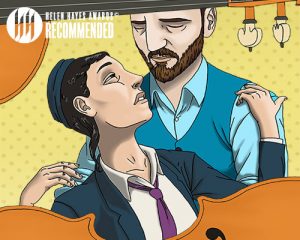During the 10-day period that spans Rosh Hashana and Yom Kippur, it’s customary to attend to your soul, contemplate your shortcomings, and resolve to do better. Some of the rabbis I know call this “spiritual work.”

Mine took the form of going to the theater with a number of my graduate students in tow. Appropriately enough, the play we went to see was Theater J’s absorbing new production of Yentl.
This version of the I.B. Singer short story Yentl, der yeshive-bokher, places sexual ambiguity, or “spiritual androgyny,” as the title character puts it right at the getgo, at its core. Earlier versions, especially the 1980s Barbra Streisand vehicle, placed a premium on feminism, on yearnings that had more to do with the intellect than the body.
What struck me as I compared the merits of both productions wasn’t so much the realization that each generation fashions a Yentl that speaks most directly to its singular set of concerns. What struck me most forcefully was the power of the voice or, more to the point, the power of multiple voices, joined together in song and conversation.
From listening to the performers sing and act to engaging in lively discussion about the play with my students the very next morning, I came away heartened, even energized, by the possibilities that lie in store for those fortunate enough to use our voices in song, speech and prayer.


